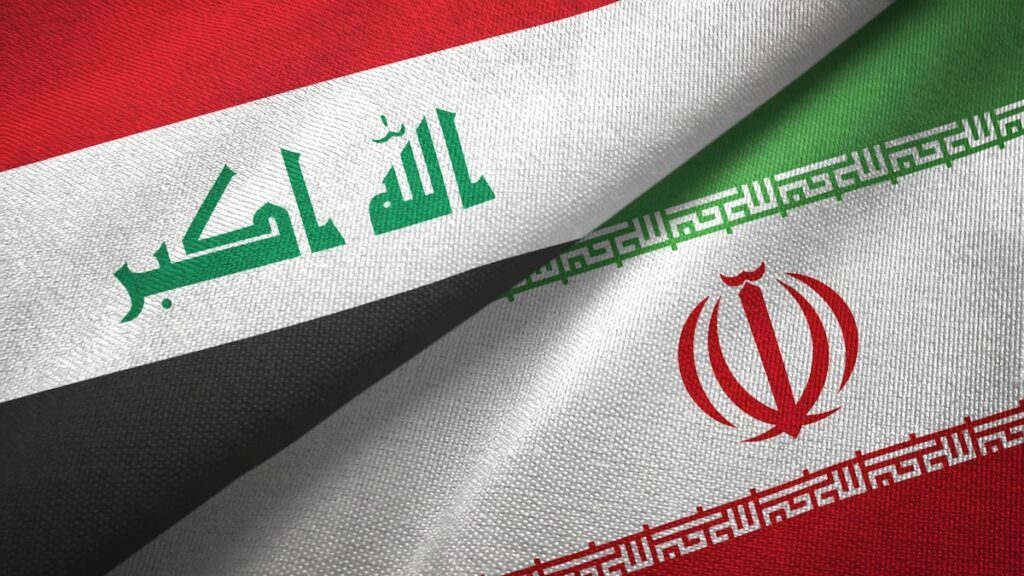BAGHDAD, June 14 — Iraq has issued an urgent call for de-escalation and neutrality amid rising military tensions between Iran and Israel, urging both Tehran and Washington to avoid drawing Baghdad into a wider regional conflict.
Iraq finds itself in a precarious position it is a close ally of Iran, but also hosts around 2,500 U.S. troops as part of the international coalition against the Islamic State. With Israel and Iran trading airstrikes and threats in recent days, the Iraqi government is trying to walk a diplomatic tightrope to protect its sovereignty.
Iraq Warns Against Violation of Its Airspace
In a statement late Saturday, the Iraqi government issued a sharp rebuke over the reported use of its airspace in recent Israeli strikes on Iranian territory. Without directly naming Israel, the statement referred to it as the “Zionist entity” and condemned any unauthorized military operations crossing through Iraq.
“The government reiterates its firm and unequivocal rejection of any violation of Iraqi airspace or its use in military attacks carried out by the Zionist entity against the Islamic Republic of Iran,” the statement read.
Baghdad also called on the United States to fulfill its obligations by ensuring that no Israeli military aircraft traverse Iraqi airspace a pointed request to Washington, Israel’s key ally.
Diplomatic Backchannels With Iran and the U.S.
A senior Iraqi security official, speaking anonymously due to the sensitivity of the issue, confirmed that Baghdad had reached out to Tehran asking it not to target U.S. interests or personnel on Iraqi soil.
“The request was made. They promised us positive things,” the official said, suggesting Iran had provided reassurances.
At the same time, Iraq also sent an official diplomatic request to Washington to assist in securing its airspace, emphasizing the U.S.’s leadership role in the anti-ISIS coalition and its capacity to prevent escalation through Iraqi territory.
On Friday, Iraq submitted a formal complaint to the United Nations regarding Israel’s alleged use of its airspace for cross-border military action.
Rising Risk to U.S. Forces in Iraq
Tensions have grown significantly since Israel launched airstrikes early Friday on military and nuclear sites across Iran, triggering fears of broader retaliation. Iran has long threatened to target U.S. military assets across the region if conflict erupts and diplomatic efforts over its nuclear program fail.
U.S. forces stationed in Iraq and neighboring Syria have already come under fire from Tehran-backed militias in recent months. Since the onset of the Gaza war in October 2023, pro-Iranian armed factions have launched dozens of drone and rocket attacks on U.S. military positions, especially in western Iraq and eastern Syria.
Baghdad Caught Between Strategic Allies
The Iraqi government is trying to maintain a neutral stance, but its position is growing more fragile as the region inches closer to broader confrontation. Iraq’s leadership fears that any escalation could trigger renewed instability, recalling the years of sectarian violence and proxy conflict that followed the U.S. invasion in 2003.
Earlier this week, the U.S. embassy in Baghdad announced a reduction in staffing, citing elevated security concerns amid fears of attacks by Iran-aligned militias.
In response to the evolving crisis, Iraqi Shiite militias aligned with Iran including the powerful Kataeb Hezbollah have called for an expedited withdrawal of U.S. troops. In a statement Friday, the group warned of “additional wars in the region” if foreign forces remained in Iraq.
Iraq Pushes for De-escalation as Regional Conflict Looms
As Iran and Israel exchange hostilities, Iraq is seeking to avoid becoming a battleground for their confrontation. By appealing to both Washington and Tehran, Baghdad is aiming to preserve its territorial integrity and prevent further destabilization.
But with Iranian proxies active in Iraq and U.S. assets at risk, the path forward is uncertain. The Middle East stands on a razor’s edge, and Iraq is increasingly caught in the crossfire.
